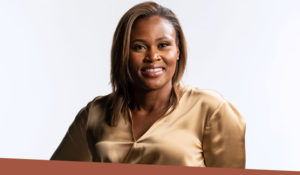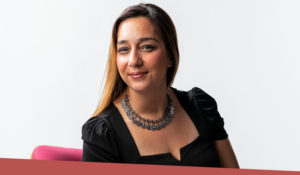MyVU is spotlighting a select group of new faculty for 2019-20. Read more profiles in the series.
Anthony Reed’s deep interest in the intersections between black literary forms and politics was sparked during the 1980s, when, as a child, he discovered hip-hop and rap music.
“Listening to the radio while growing up in the Detroit area was my first exposure to names and points of view that were bracing and exciting,” Reed says. “It brought my attention to how poetry and other popular forms of expression could mobilize people or just galvanize attention.”
Reed earned both a bachelor of arts with distinction in English language and literature and an MFA in prose fiction from the University of Michigan, where he also wrote poetry, started a novel and led a jazz band.
He taught at Harold Washington College in Chicago and focused on his own writing before enrolling at Cornell University, where he earned his doctorate in English and American literature in 2010. He then taught at Yale University, with appointments in English and African American studies.
Reed has devoted significant research to unconventional writers during the Black Power movement of the 1960s and ’70s whose work did not fit “the stereotype of poets whose politics consist of strident opposition to the mainstream,” he says. His first academic book, Freedom Time: The Poetics and Politics of Black Experimental Writing, won the William Sanders Scarborough Prize from the Modern Language Association for an outstanding scholarly study of black American literature or culture.
“It brought my attention to how poetry and other popular forms of expression could mobilize people or just galvanize attention.”
“I coined the term ‘black experimental writing’ to capture works that diverge from what we think we understand about blackness and writing,” Reed says. In Freedom Time, he offers extended analyses of many African American and Afro-Caribbean writers from the 20th century, like the late N.H. Pritchard, whose poetry was considered avant-garde in the ’60s, as well as more contemporary writers like Nathaniel Mackey.
Reed disagrees with those who feel that the Black Power movement of the ’60s and ’70s is no longer relevant. “That was a time of uncertainty and of competing claims to organization and politics,” he says. “Some would argue that we are in a similar moment today, and it would benefit us to work through the social justice issues that were raised 50 or more years ago.”
Reed also looks back at the 20th century for greater understanding of our present and future in his forthcoming book, Soundworks: Race, Poetry, and Sound in Production. He explores recorded collaborations between poets and musicians, starting with Langston Hughes and Charles Mingus, noting that there has been a flurry of similar collaborations in recent years.
This fall, Reed, who is married to new Associate Professor of English Emily Lordi, is teaching two literature courses: Slavery’s Fictions, which offers a broad view of the fictions of racial slavery and its many afterlives in the Americas; and 20th and 21st Century African American Poetry. “I’m excited to be able to teach this part of the canon, especially given the very vibrant creative writing community in my new department.”
More News from Vanderbilt





